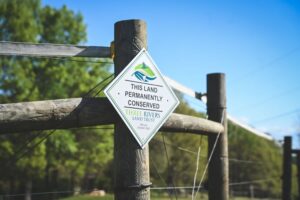
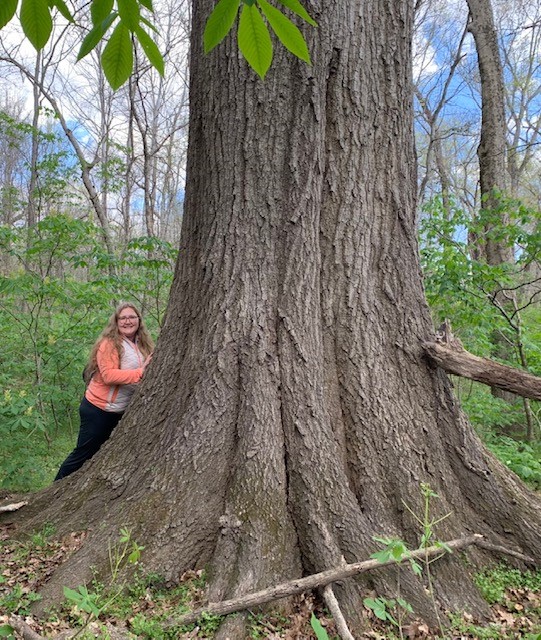
Article by Crystal Cockman, TRLT Associate Director 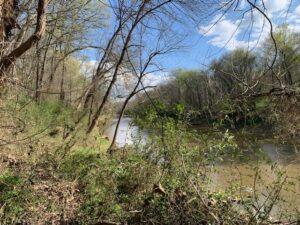
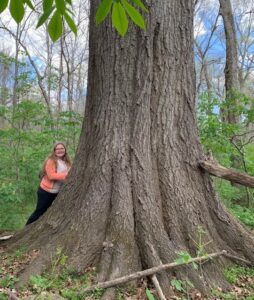
On Saturday, March 26th, Three Rivers Land Trust (TRLT) in partnership with the Sandhills Natural History Society, led a nature walk on a TRLT owned property along the Deep River in Moore County. This property is located near the House and the Horseshoe, north of Carthage. This property has a lot of really old and large trees down near the Deep River, including two trees that are state champions, a Shumard oak and a Florida maple. Bruce Sorrie, an expert botanist, joined us for this trip.
The hike began at 9am with a group of about 20 participants and we started our walk down to the river bottom. There were some ephemeral pools along the way with salamander egg masses, and we stopped to take a look at those. Most likely they were spotted salamander eggs, encased in a gelatinous goo. The larvae emerge from their eggs, and grow into adult salamanders when they develop lungs and lose their external gills and become terrestrial.
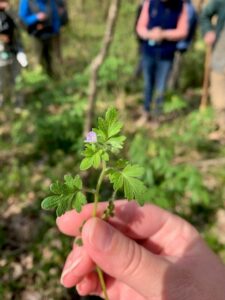
Further down in the floodplain, we began to spot a wide variety of wildflowers in bloom, including a lot of painted buckeyes, trout lilies, Carolina spring beauties, purple violets, yellow violets, jack-in-the-pulpits, and more. There were some really large trees along the river bottom, including species like hackberry, sugarberry, black walnut, swamp chestnut oak (also known as basket oak), bitternut hickory, and more. We made our way out to where we could see the Deep River. Bruce pointed out that the river bottom had such a diversity of plant life because of the rich sediment deposited here by the river over thousands of years.
Bruce found a rare plant in bloom, Colville’s phacelia, also known as buttercup scorpionweed. This plant has a very disjunct distribution in the eastern United States, being found in Maryland, and North Carolina where it is listed as S1 endangered (and Bruce said was only found in about 6 counties in the Piedmont of NC), and then in Indiana, Ohio, Virginia and West Virginia. It also occurs in Washington DC, Illinois and Missouri. It has pretty little blue-violet flowers and is very delicate looking with lacy lobed green leaves.
The group made its way back up along the river to the huge Shumard oak, which we measured at over 6 feet in diameter. Truly an ancient giant, participants enjoyed taking their picture beside this massive tree by which they looked tiny in comparison. A short walk away from there was the other champion, the Florida maple, which was not a huge tree but a very large tree for its species. Many of the participants said how much they liked the walk and getting to see these large old trees and the blooming wildflowers of early springtime in central North Carolina.
Please visit our website at trlt.org to register for another one of our upcoming hike or paddle trips to see more conserved properties and the work that TRLT is doing in our region.